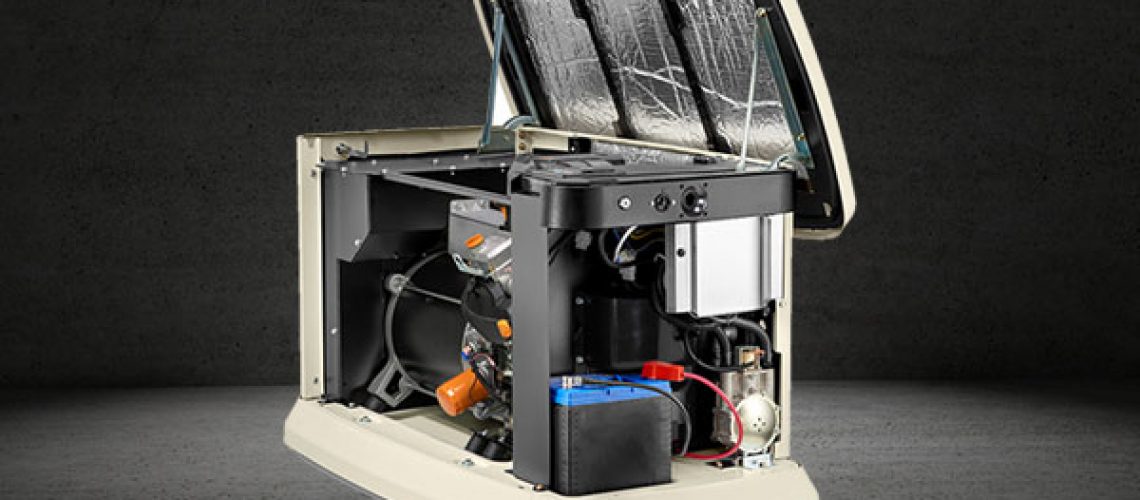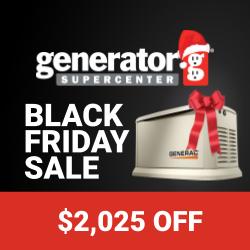It always seems like such a bright idea, but it is something that we don’t necessarily think about until those rare situations actually arise. When the power goes out in your home, and it lasts longer than a few hours, the natural reaction is to regret that we didn’t purchase a generator sooner. Having a backup plan, especially if you live in an area prone to power outages, gives you peace of mind. A generator is so important to your home, but you need to understand some of the basics when it comes to generators, such as what they are, and what you need. Let’s dive in.
What Is a Standby Generator?
A standby generator is a backup power solution that switches on automatically if you experience a power outage. Standby generators are usually stationary, and they require a foundation outside of your home, such as a concrete pad. A standby generator is a very robust solution and provides power for days if you are experiencing issues in your neighborhood. The role of a standby generator is to stand by, should a situation such as a disaster, blackout, or bad weather cause issues with the power grid.
Does My Home Need a Generator?
It is a valid question to ask. If you think you need a backup power supply because you have some items in your freezer, the cost of running a generator may be more than actually replacing the food. On the other hand, if you are running essential equipment, especially in cold areas where you need to heat your home all day every day, it is vital that you have a backup power supply. In addition, any medical equipment that requires electricity needs “life support.” For example, breathing machines or a home dialysis machine may require a backup supply. If you experience a blackout that lasts longer than the battery backup on the devices, it is important to get a secondary power source.
What Size Generator Do You Need?
Choosing the right size generator is about two important things: understanding how much power you need to keep your home going, and what appliances are essential. You also need to consider how frequent your power outages are. For example, if you experience frequent power outages in your location, a larger generator may be the best option. However, if you rarely lose power, you may require something smaller. The most important thing for you to do is calculate how much wattage your essential appliances use, and this will give you a general idea of how big your generator should be.
Is It Difficult To Install a Generator?
Installing a generator comes with many different considerations. Firstly, you’ve got to think of the energy capacity you need. When you’ve decided on the best size generator for your needs, you will then have to consider the right fuel. There are different types of fuel for your generators, such as diesel, LP gas (also known as propane), and natural gas. But in addition to these, you will have to think about what it actually takes to install the generator yourself. Most people like to save some money and try to do it themselves. And while there’s plenty of resources to help you, you really have to consider the following:
Plumbing Connections
If you are using LP gas or natural gas, you will need to connect the gas line to the generator. This is not always straightforward and requires being 110% sure that you have the correct valves to handle the gas you are using. After all, you are handling dangerous substances.
Electrical Connections
You have to be aware of your electrical configuration. Standby generators will use an automatic transfer switch. This is what detects the power outage and kicks the generator to life. But your electrical configuration may mean the switch transfers power to a separate breaker panel. This means electricity will only go to the circuits that you have pre-configured.
Site Selection
Each generator has a specific set of guidelines. For example, it may state the strict proximity of the generator to your home. If your home is not suitable for the generator of your choice, this can cause a significant amount of problems. You have to be aware of how close the exhaust of the unit is to the property, entryways, and windows.
Building Permits and HOA Restrictions
Depending on where you live, it may be essential to get a building permit to install your generator. In addition, there may be restrictions based on your homeowner’s association (HOA), which control a significant spanner into the works. When you find that it takes a lot of effort to install a generator yourself, but also make sure you stick to the rules and regulations, it can be a considerable headache.
At Generator Supercenter, our turn-key generator installation solutions means that, for one price, everything is covered. You do not need to worry about anything. Our factory-certified service staff is able to obtain the permits and authorizations for your location, and we will determine the best place to put your unit and deal with the installation process.
The Operation and Maintenance of Your Generator
When it comes to getting a generator, it is not just about ensuring that the installation is smooth, but it is about keeping the machine up and running. Most people are not trained or experienced when it comes to generators. And it can be difficult to know when your generator needs servicing. Many times, by the time you realize your generator needs servicing, it is too late. But this is where our GenMonitor Maintenance Program can help. Our online management monitoring system means that we can check the health of your generator in real-time. This means that we will know about any issues before you do.
A generator is an incredibly useful resource in an emergency like a power outage or a natural disaster. If you have been on the fence about choosing a generator, it is time to switch the light on. Don’t let it be something you regret the next time you suffer a power outage.








